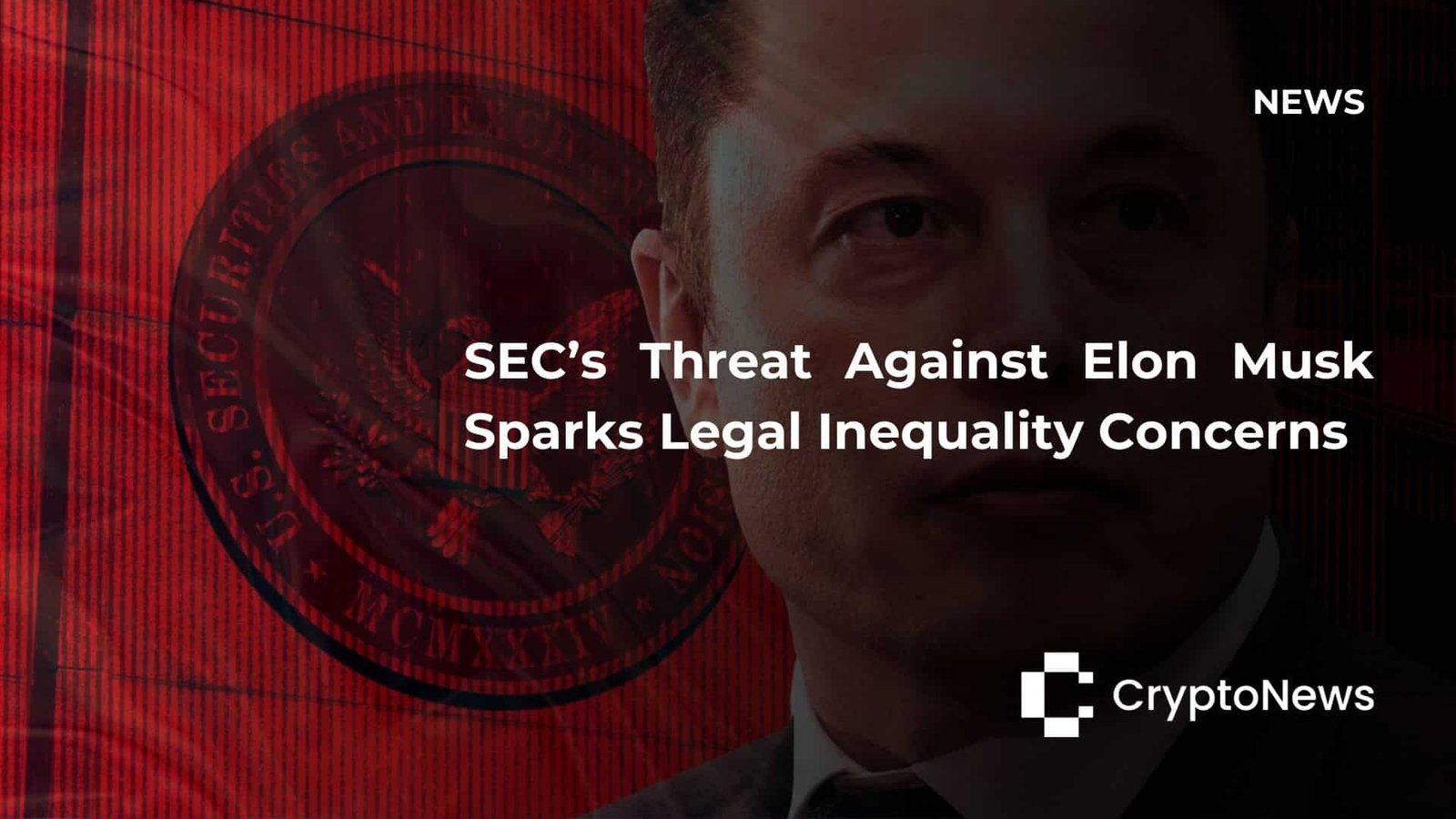KeyTakeaways:
- SEC threatens Musk with legal action, raising concerns over regulatory overreach.
- Ripple advocate warns smaller businesses struggle against SEC’s aggressive tactics.
- Leadership changes at SEC may signal a shift toward clearer crypto regulations.
The U.S. Securities and Exchange Commission (SEC) has issued a formal settlement demand to Elon Musk, warning the entrepreneur that legal action could be taken within 48 hours unless he complies.
This move has ignited widespread debate among the crypto community, which sees the SEC’s tactics as politically motivated and disproportionate. The situation has raised concerns about the regulatory agency’s growing influence and its impact on businesses of all sizes.
John Deaton, a lawyer and prominent advocate for Ripple, voiced his concern over the SEC’s treatment of Musk, highlighting the potential harm such regulatory actions could have on smaller businesses. In a post on X (formerly Twitter), Deaton pointed out that while Musk has the legal resources to defend himself, smaller firms would face challenges against the SEC’s aggressive approach.
Deaton also emphasized that the SEC’s actions have already damaged many small businesses in the U.S., raising questions about the fairness of the agency’s regulatory practices.
Deaton referenced the multi-million-dollar legal battle between Ripple and the SEC, noting that Ripple and CEO Brad Garlinghouse spent approximately $150 million in their efforts to challenge the agency.
He warned that most businesses, unlike Musk or Ripple, lack the financial means to engage in such costly legal proceedings, making them especially vulnerable to what he described as the SEC’s overreach.
Musk’s Legal Team Responds to SEC’s Actions
Musk’s attorney, Alex Spiro, criticized the SEC’s handling of the case, accusing the agency of harassment and politically motivated behavior. Spiro asserted that the SEC’s actions were less focused on uncovering the truth and more aimed at targeting Musk personally and companies connected to him, such as Neuralink.
Source: X
However, recent shifts in leadership could impact the SEC’s approach to Musk and other tech-related matters. Earlier this month, President-elect Donald Trump appointed Paul Atkins, a former SEC Commissioner, to serve as the new SEC Chair.
Atkins’ appointment signals potential changes in the agency’s stance regarding regulatory clarity for the crypto industry. Alongside Atkins, Commissioners Hester Peirce and Mark Uyeda are expected to bring a more balanced approach to the SEC’s leadership.
In addition, Trump appointed David Sacks, a former PayPal executive, as the White House AI and Crypto Czar. Sacks will oversee the development of a regulatory framework for digital assets, a role that has raised hopes among crypto proponents for a clearer and more consistent regulatory environment.











